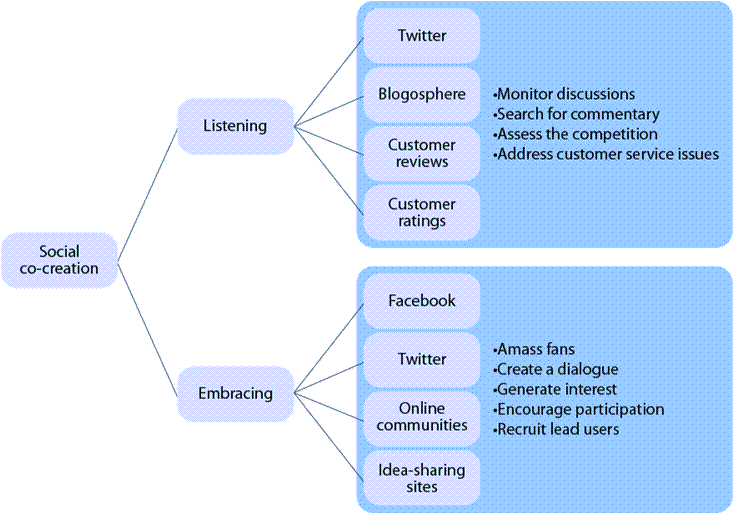Social Co-Creation: 9 Benefits And 6 Challenges For Using Social Technologies To Improve Your Products
Forrester has been publishing research on social technologies for several years, much of that being focused on the Interactive Marketing role. Recently, we have expanded our research on social technologies to apply to many other roles, such as Customer Intelligence, Market Research, Customer Experience and eBusiness and Channel Strategy. You can now add Consumer Product Strategy to that list. As our recent panel survey report demonstrates, social technologies are relevant to Consumer Product Strategy (CPS) professionals as well because they give companies the opportunity to listen to and embrace consumers — and allow them to help create new products and innovate existing products. While the idea of social co-creation has been referenced in Forrester's research reports many times, this concept has not been explored deeply, until now.
In my just-published "Social Co-Creation" report, I define co-creation as "the act of involving consumers directly, and in some cases repeatedly, in the product creation or innovation process." Social technologies like online communities, Facebook, Twitter, company blogs, and Web sites provide CPS professionals with relatively easy access to engaged consumers. Through a combination of listening and embracing, companies can understand what unmet needs exist in the market today, recognize where current products are coming up short, tap the wisdom of the crowd to test ideas, and develop relationships with engaged consumers to drive new concepts into the market.

In the report, I offer nine reasons why consumer product strategists should embrace a co-creation strategy, which include such things as idea generation, idea validation, and risk mitigation. I also identify six challenges that must first be considered before moving too quickly down that path, such as issues around intellectual property and the level of control given to the product team for the social engagement. But you can't just jump into a social co-creation without solid advance planning. By applying Forrester's POST methodology — people, objectives, strategy, technology — CPS professionals will have a tried-and-true framework around which they can construct successful co-creation strategies.
The report includes many references to co-creation engagements that have been tested in the market, but we are always looking for new success stories. Has your company used social technologies to engage with consumers and influence product creation and innovation? I’d love to hear about it in the comments below, or drop me an email: dwilliams at forrester dot com.